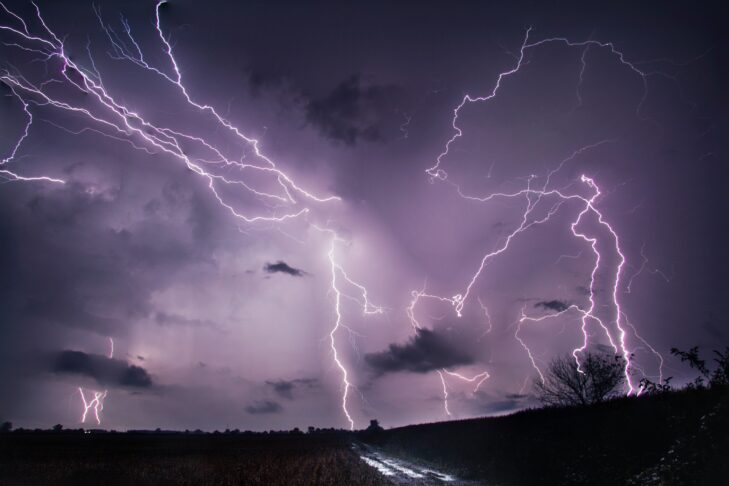A knock on the door. A hail of gunfire. A bomb threat. Pair these acts with the following: a hostage situation at a temple in Colleyville, Texas, the Tree of Life synagogue murders in Pittsburgh and various Jewish Community Centers across the country and it paints an upsetting picture of antisemitism in the 21st century.
And then there are daily microaggressions, like when a salesperson looks at my credit card and asks, “What kind of name is Fasman?” I recognize that she is masquerading as benignly curious. A woman in a writing workshop asks me if I am Jewish. When I say that I am, she exclaims, “I knew it! You look and act just like a Jew.”
For most of my life, I never imagined antisemitism and its insidious, even deadly, incarnations would land in my backyard. Was America a fleeting fairytale for Jews, where the doors of synagogues and day schools were once unlocked?
Access is the hallmark of a democracy; access has been crucial in making me feel less claustrophobic and fearful as I move about in the world. I am 62 and grew up in an America where I regarded antisemitism as an abstract concept. I was comfortable as the only Jew at the all-girls Catholic high school I attended. At Mount Saint Joseph Academy, I was respected and accepted—never subjected to antisemitism. That does not mean I was not aware of my people’s tragic, oppressive history. But was I naïve about antisemitism? Or just lucky not to be a victim of it? Or worse, in denial?
Before I was married, my name was just Bolton, an anglicized version of the Russian Jewish surname Bolotin. Although I passed as someone other than Jewish with my name, I never denied my Jewishness. I am a Jew. How many of my fellow Jews have uttered those words on pain of death?
This latest surge in antisemitism heightens my anxiety disorder. How did I come to be afraid of being a Jew in America? In what sort of universe do congregations send notices about safety training in case of a shooter in the synagogue? “Danger, danger, danger” runs through my mind like a ticker tape. I am hyper-vigilant, a hallmark of an anxious person. These days I note the exits in all spaces—Jewish and otherwise. My catastrophizing—something I have done throughout my life—is unfortunately now plausible.
Take in this bedrock fact: The Anti-Defamation League found that antisemitic incidents in the United States are at their highest point since the organization began tracking such events in 1979. Jewish Insider noted that a recently released FBI report shows antisemitic hate crimes accounted for the majority of religious-based hate crimes committed in 2021. The increase of 500 antisemitic incidents since 2020 brought the number to 817. Place that number in the context that Jews are just 2.4% of the U.S. population and 0.2% of the world’s population and the threat is amplified. I’m terrified that the fury against Jews that has marched across millennia will always be with us.
Lately my panic over safety has nervously flitted among the five stages of grief that Elisabeth Kübler-Ross talked about over half a century ago. But in the wake of Rabbi Harold Kushner’s recent death, I turned to his work for solace and guidance. Among the wonders that Rabbi Kushner imparted—to Jews and those not Jewish—was the accessible theology he presented in his first bestseller, “When Bad Things Happen to Good People.” The title is a fixture in American culture, and it continues to resonate.
In a pessimistic mood, I invert Rabbi Kushner’s iconic title to “When Good Things Happen to Bad People.” I struggle with why our suffering does not seem to move God. Why is God a resolutely silent witness to the horrors we humans continue to bring upon ourselves? One explanation (that doesn’t entirely work for me) is that God gave us free will, and we have abused the privilege. I also struggle with a God that has never acknowledged how, in the middle of the 20th century, documented for all the world to witness, Jews in Europe were gassed and murdered in cold blood, Jewish blood.
Over the years, I have read anxiety should be managed in small blocks of time. My therapist advised me to handle things in 10-minute increments when anxiety-provoking “what if” thoughts veered toward panic. But sometimes, I step back and take an aerial view of circumstances. Given this new surge of antisemitism, will we feel safe again? My coping mechanism is to navigate this new reality with anxious optimism. For me, that means maintaining hyper-vigilance as I continue to live my life in Jewish and public spaces.
I find solace in the honest, vulnerable words of Rabbi Kushner’s “Love Letter to a World that May or May Not Deserve It.” The letter appeared in his final book, “Nine Essential Things I’ve Learned About Life.” I hope these words resonate with you as they have for me.
It reads, in part: “There were days when you were more generous to me than I could possibly have deserved. And there were days when you cheated me out of things I felt I was entitled to. There were days when you looked so achingly beautiful that I could hardly believe you were mine, and days when you broke my heart and reduced me to tears. But with it all, I choose to love you. I love you, whether you deserve it or not (and how does one measure that?). I love you in part because you are the only world I have. I love you because I like who I am better when I do. But mostly I love you because loving you makes it easier for me to be grateful and hopeful about tomorrow. Love does that.”



